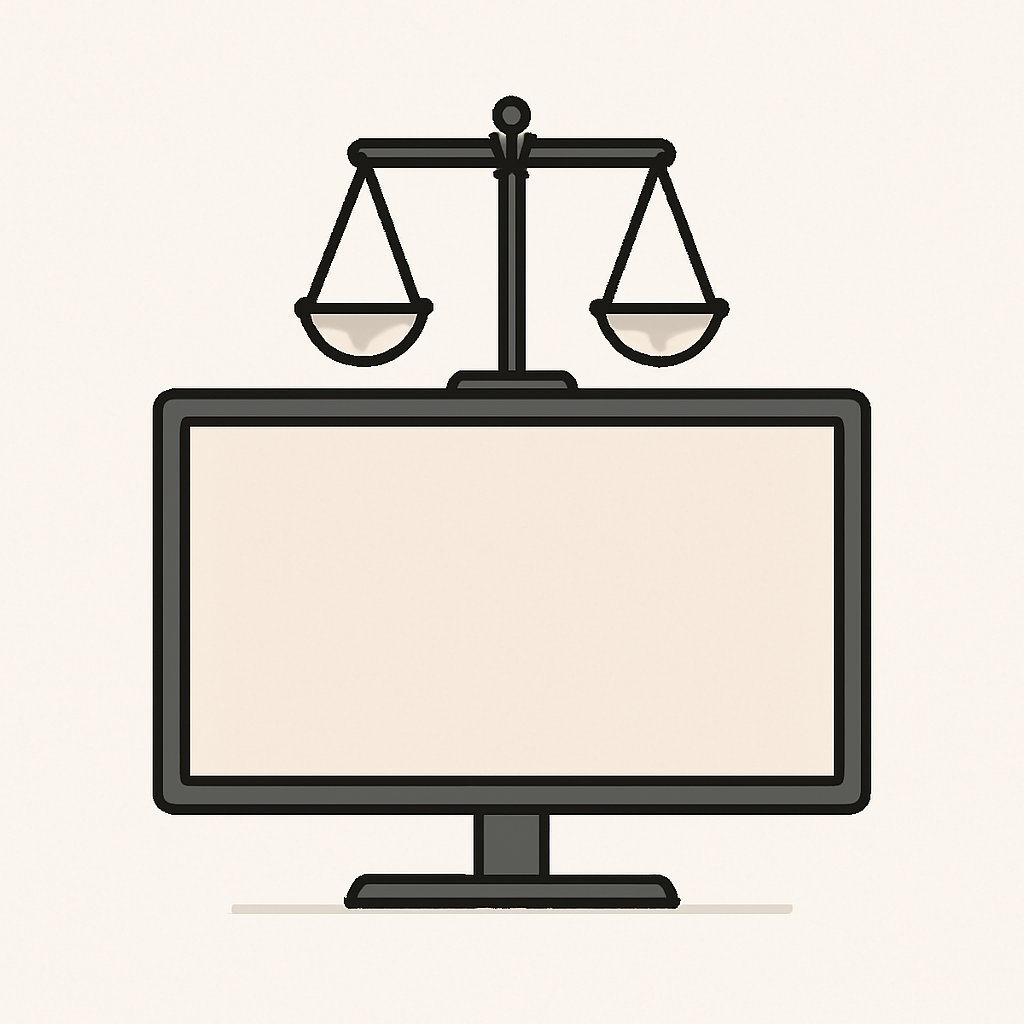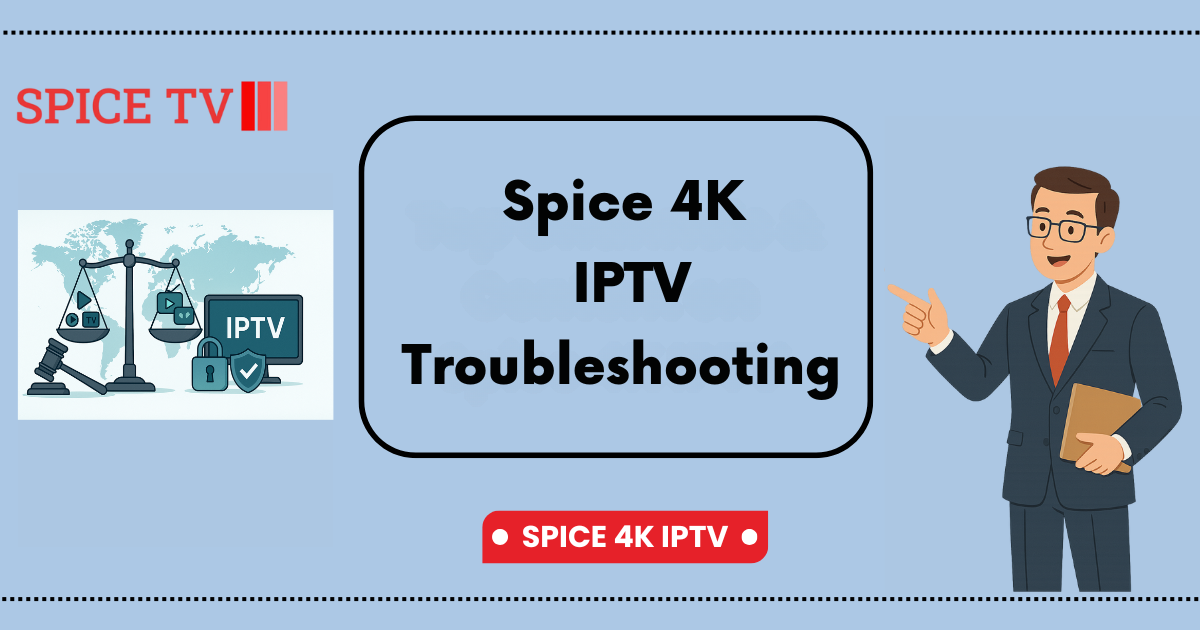Internet Protocol Television (IPTV) has become a major alternative to traditional cable and satellite. It allows you to watch live TV channels, on-demand movies, and sports through the internet. The technology offers flexibility and often lower costs, which is why millions of people across the globe are switching to IPTV services.
But here’s the challenge: Is IPTV legal? The short answer is that the technology itself is legal, but many IPTV providers operate without licensing agreements, which makes their services illegal. Streaming unlicensed content can expose both providers and users to legal penalties.
This in-depth guide examines IPTV technology, legal frameworks in different regions, how to spot licensed vs. unlicensed providers, the risks involved, and practical tips for streaming safely without jeopardizing your security or finances.
1) What Is IPTV? Technology vs. Legality
IPTV (Internet Protocol Television) refers to delivering television and video programming over the internet rather than traditional cable or satellite infrastructures. It works through streaming protocols and is compatible with smart TVs, streaming boxes, smartphones, and computers.
Key points:
- Technology is neutral. IPTV is simply a delivery method, just like cable or satellite.
- Legality depends on licensing. Providers must obtain distribution rights for the content they broadcast.
- Examples of legal IPTV: YouTube TV, FuboTV, Spice 4k IPTV, Sling TV, Hulu + Live TV, telecom-operated IPTV platforms.
So IPTV alone isn’t the issue—the content rights are what determine whether an IPTV provider is operating legally.
2) Is IPTV Legal? The Quick Answer

- Yes: IPTV is legal when licensed providers distribute the content.
- No: IPTV services that restream channels, movies, or sports without permission are illegal.
What determines legality?
- Providers must purchase broadcasting rights.
- Distributing content without rights is copyright infringement.
- Users may also be at risk depending on local laws.
Liability varies by region:
- Providers almost always face arrests, bans, and lawsuits.
- Users can face notices, fines, or even jail in regions such as Italy, Greece, and the UK.
3) IPTV Apps, Devices, and Playlists: What’s Legal vs. Illegal
Not every tool used for IPTV is illegal—the difference comes down to how it’s configured:
- IPTV Apps (example: VLC, Kodi, Tivimate, Perfect Player): They are legal programs by themselves. Using them with licensed sources is fine. Configuring them with unlicensed streams makes the activity illegal.
- Fully-Loaded Boxes: Streaming devices (Fire Stick, Android TV, MAG boxes) are legal. But “fully loaded” devices preinstalled with piracy apps are illegal to sell or use. In 2017, the European Court of Justice banned such devices.
- M3U Playlists and Xtream Codes: Both are legal formats and technologies. But if they’re used to streaming pirated content, that’s illegal.
Rule of thumb: Devices and apps are legal. It’s the content source that determines the legality.
4) Copyright & Broadcast Rights Explained
Copyright and broadcast rights are the backbone of IPTV legality.
- Territorial rights: Content owners sell rights region by region.
- Exclusive licenses: Sports leagues, movie studios, and networks often sell exclusive rights, which is why your channel lineup differs by Country.
- Geo-blocks and blackouts: Some sports events or shows are blocked in certain regions due to licensing restrictions.
- Why “cheap everything” is illegal: A provider offering worldwide access to all premium sports and films for $10 monthly cannot have paid for licensing—it’s pirated.
Rights enforcement is what cable companies, streaming giants, and regulators strongly protect, making piracy risky.
5) Is IPTV Legal in Different Regions?
Europe
- UK: The Digital Economy Act allows up to 10 years in prison for streaming piracy. Users often receive ISP warnings. Providers get raided.
- Italy: In 2025, over 2,200 users were fined between €154 and €1,032 for using illegal IPTV services. Repeat fines can hit €5,000.
- Greece: Users caught streaming pirated IPTV face €750 fines.
- France: Focuses on shutting down illegal platforms but penalizes serious copyright infringers.
- Germany: Punishes distributors, but consumers are not always targeted.
- Spain/Netherlands: Spain targets providers. The Netherlands treats streaming the same as downloading—both illegal.
Enforcement trends across Europe are shifting towards prosecuting both providers and users.
North America
- United States:
- The Protecting Lawful Streaming Act (2020) classifies operating an illegal IPTV service as a felony (10-year maximum sentence).
- High-profile case: Bill Omar Carrasquillo (“Omi in a Hellcat”) sentenced to 5½ years and forfeited $30M in 2023.
- Users haven’t been criminally charged, but risk lawsuits and ISP crackdowns.
- Canada: Uses a notice-and-notice system. Users receive ISP warning letters but not immediate fines. Repeat issues can escalate to court.
Asia & Middle East
- India: Legal through licensed providers (Airtel, JioTV). Dozens of unlicensed services were shut down in recent years.
- Bangladesh: Shut down 59 pirate services in 2021, then approved 14 licensed providers.
- UAE/Qatar/Saudi Arabia: IPTV is legal only if the provider has rights. Dubai police seized 12,000 pirated streams in 2024. The BeoutQ case (Saudi Arabia) raised international pressure on piracy.
- Southeast Asia: Piracy boxes are common but heavily targeted (Singapore, Malaysia, Thailand). ISPs block pirate URLs under court orders.
Oceania
- Australia: IPTV is legal if licensed. Courts frequently block domains of pirate platforms. In 2023, a man supplying pirated Foxtel content to 8,000 customers was convicted.
- New Zealand: Allows courts to go after pirates hosted outside the Country. ISPs actively block pirated streams, especially for live sports.
6) Risks of Using Unlicensed IPTV
Using pirate IPTV may sound cheap and easy, but it comes with real risks:
Legal penalties:
- Italy, Greece, and other fine users.
- The UK and the US use ISP warnings and lawsuits.
Service shutdowns:
- Many pirate IPTV services disappear after raids.
- No refunds, no guarantees.
Cybersecurity risks:
- Many pirated apps contain malware, spyware, or backdoors.
- Fake apps may steal banking details.
Financial scams:
- Some “providers” vanish after taking payments.
- Common scam: selling one source under multiple brand names, then vanishing when raided.
ISP/account issues:
- Bandwidth throttling and account suspensions are common when caught.
Ethical issues:
- Piracy reduces incentives for content creation.
- Some pirate rings fund organized crime networks.
7) How to Choose a Legit IPTV Provider (Compliance Checklist)
When shopping around, use this checklist:
- Company Transparency: Legit services have registered business details.
- Official App Store Presence: Trusted apps appear on Google Play, Apple Store, Fire TV, or Roku.
- Realistic Pricing: Legal providers charge fair rates because they pay for licenses. Avoid deals that feel “too good.”
- Payments: Traceable methods like PayPal, debit, and credit cards are good signs. Bitcoins or gift card payments? Avoid.
- Channel Lineup: A legal provider offers realistic selections, not “every premium channel worldwide.”
- Independent Reviews: Check tech sites or streaming communities for feedback.
- Regulatory Listings: In the EU, ARCOM has a directory of legal services. In North America, the FCC and CRTC enforce compliance.
8) Safe Streaming Practices
Keep your streaming safe and problem-free by following these steps:
- Stick with licensed services like YouTube TV, Hulu + Live, and telecom IPTV.
- Only download apps from official app stores.
- Update devices regularly to avoid security risks.
- Avoid “free live sports/movie” link sites, which are malware-heavy.
- Educate household members on legal vs. illegal streaming apps.
- Understand that VPNs may protect privacy—but VPNs don’t make piracy legal.
9) Common Myths about IPTV Legality
- Myth: All IPTV services are illegal.
- Reality: IPTV technology is legal. Pirated IPTV is the issue.
- Myth: If I pay for it, it’s legal.
- Reality: Paying pirates doesn’t confer rights.
- Myth: Streaming is legal, but downloading isn’t.
- Reality: Many regions now outlaw both.
- Myth: They only go after providers.
- Reality: Italy and Greece fine users directly.
- Myth: Using a VPN makes it legal.
- Reality: VPNs add anonymity, not rights.
- Myth: IPTV piracy is victimless.
- Reality: It impacts broadcasters, creators, and sometimes funds organized crime.
10) Recent IPTV Enforcement Actions
- Europe: Operation Xtream Codes (2019) led to 5,500 servers being shut down. Data of 50 million users exposed.
- Italy 2025: 2,200+ users fined for piracy IPTV usage.
- US: Omi in a Hellcat sentenced to 5½ years, paid $30M in damages.
- Middle East: Dubai police seized 12,000 illegal IPTV streams in 2024.
- Global: ACE coalition continues seizing domains of illegal IPTV providers, replacing them with anti-piracy warnings.
12) Conclusion & Action Steps
So, is IPTV legal?
- Yes, when licensed providers distribute content.
- No, when pirate services stream without rights.
What you should do:
- Stick to providers with licenses and transparent business models.
- Run through the compliance checklist before subscribing.
- Avoid pirate services to protect yourself legally, financially, and digitally.
- Use legitimate IPTV services like Sling, Hulu + Live TV, or telecom-backed providers.
The rise of IPTV has made entertainment more accessible than ever, but the smart choice is to ensure your viewing habits are safe, compliant, and legal.




